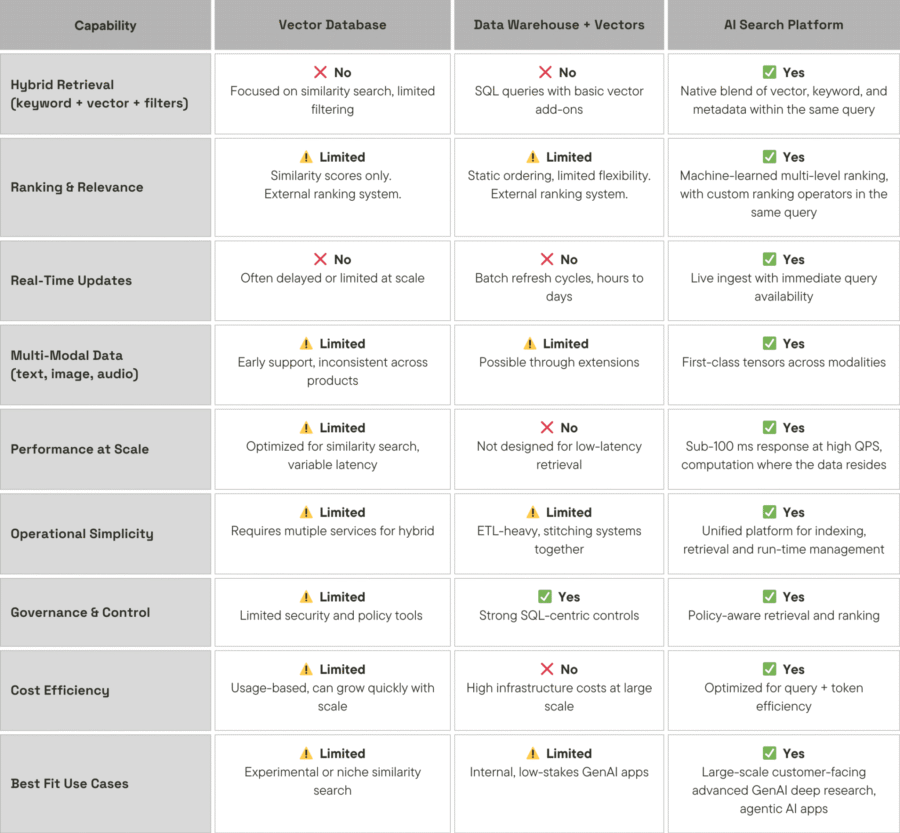The Challenge: Delivering Retrieval Accuracy at Scale
Vector databases made similarity search possible, allowing LLMs to ground their answers in vast unstructured datasets. But vector search alone isn’t enough. Production-grade AI search must also combine semantic, keyword, and metadata retrieval, apply machine-learned ranking, and manage constantly changing structured and unstructured data, all at scale, while keeping consumption costs under control.
When these capabilities are bolted together across separate systems, the cracks show quickly. Bandwidth limits, integration overhead, and shallow connections turn into bottlenecks and undermine accuracy, a critical weakness when users tend to trust AI outputs without question.










